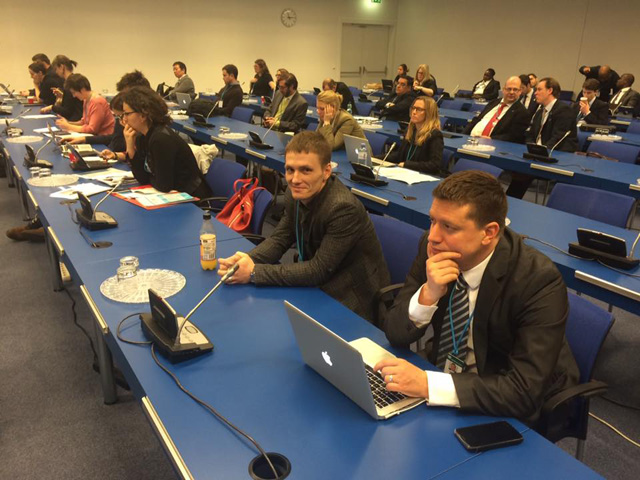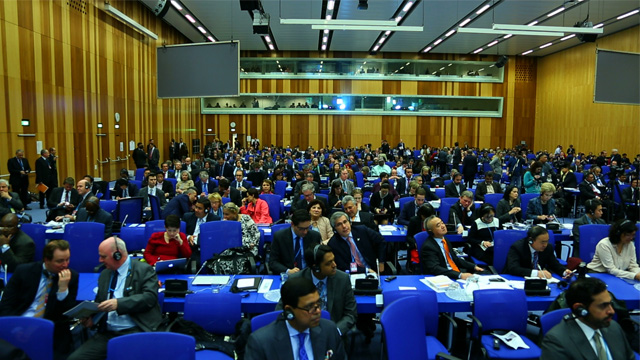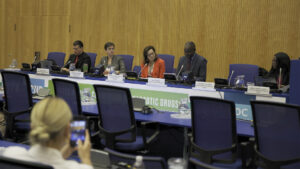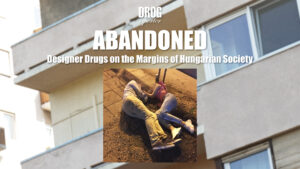While Colombia and the Czech Republic spoke up for drug policy reform at the opening day of the CND, others such as Russia or Thailand prefer the status quo and oppose any changes.
A certain excitement is being felt in the air this year, at the Commission on Narcotic Drugs (CND), an otherwise not very exciting annual UN decision-making forum on international drug control in Vienna. The excitement is due to the upcoming UN General Assembly Special Session on drugs, to be held next month in New York, the first such event in twenty years. Although the Secretary General had urged member states to use this opportunity for a “wide-ranging and open debate”, the draft outcome document produced by the UN has not met this expectation. It is a watered-down, backward-looking document, which reflects reluctance to change the status quo.
What is obvious though, is that there are a growing number of governments which are unhappy with the basic dogma of drug treaties – that all non-medical and non-scientific use of drugs should be unlawful. Some of these governments have already taken steps to reform their drug laws, and to decriminalise drug use and/or regulate the cannabis market. They claim that their reform measures are permissible within the flexibility of drug conventions. The spokesperson for the International Narcotics Control Board (INCB), Werner Sipp, disagrees. He emphasised, in his address at the opening session, that the drug treaties do not allow countries to legalise the non-medical use of cannabis, but only to respond to the unlawful behaviour with alternative measures. That means, according to INCB, that decriminalisation and depenalisation are compatible with the drug conventions, but legalisation is not. Unfortunately, he is right. But the conclusion to draw from this, is not that we are bound to keep within the limits of the drug treaties, but that the treaties are outdated.
The fact that no governments have yet dared to question the drug conventions shows the ambiguity of the current situation. Reform-minded governments from Latin-America and Europe are still not confident enough to break the so-called “Vienna consensus” – the notion that, despite their disagreements, all governments should line up behind the drug treaties. The UN system works by a full consensus model: it can only approve any decisions, if all member states are in agreement.

With Alex Kurmanevskiy (DUnews) at the press conference of the Russian delegation – questioning them about methadone
Listening to the opening speeches this year, however, we have to conclude that the Vienna consensus is finished – it exists as an illusion only. The United Nations is increasingly divided over drugs. There are some countries, for example those in the African Union, which still stick to the tough-on-drugs approach and repeat the old clichés like “with a shared responsibility we have to fight the drug menace”. I couldn’t actually help but feel that their speech was copied-and-pasted from last year. Most Asian countries and Russia follow the same hard line, condemning all kinds of drug reform, including decriminalisation and legalisation. Viktor Ivanov, the Russian drug czar, warned the UN that drug reform would lead to devastating consequences – ironic to hear such a warning, from the representative of a country with a repressive drug policy which has resulted, for so many, in disease and death. Some Latin-American member states are at the opposite end of the spectrum. Colombia, for example, made a very strong speech – revolutionary, in CND terms – in which their representative employed the famous Einstein quote on the ‘insanity of repeating the same mistakes and expecting different results’, in describing the folly of the global war on drugs. The Czech Republic seconded their position (read the speech here!), and called for system-wide reform, saying that a weak UNGASS document, which fails to endorse decriminalisation and harm reduction, would be worse than remaining silent. And then, there are many member states which are somewhere in-between, uncertain or undecided.
The world is not ready for a new single drug convention. What we are now seeing, is a deepening gap between reformers and conservatives. Will they eventually split into two groups? Will the reformers create their own drug convention, while other countries stick to the current treaties? Or will some of the reformers follow the lead of Bolivia and resign from the convention – just to re-join, with a reservation in respect of cannabis?
There are risks involved in rejecting or rewriting international treaties to suit the agendas of member states. Some people warn that this would create a dangerous precedent, and that Asian countries could do the same with other pieces of international law, on human rights, for example. But staying with the old conventions that do not reflect reality also poses obvious risks. Exciting times!
OUR VIDEO REPORT IS COMING SOON!
Peter Sarosi






